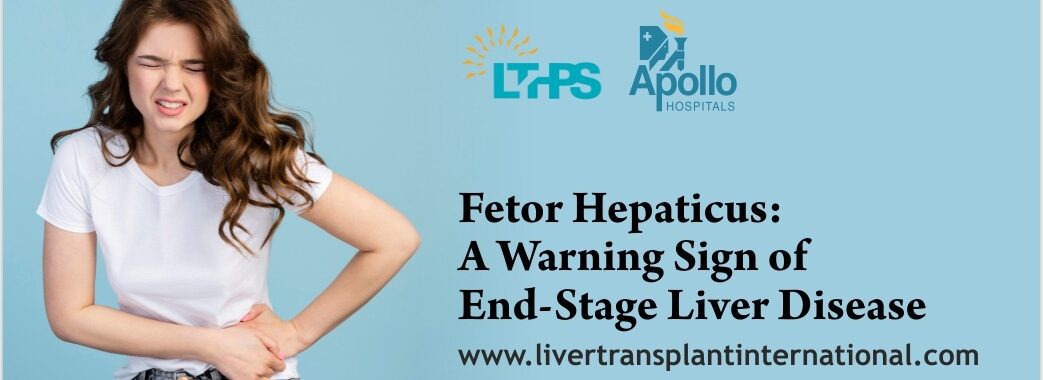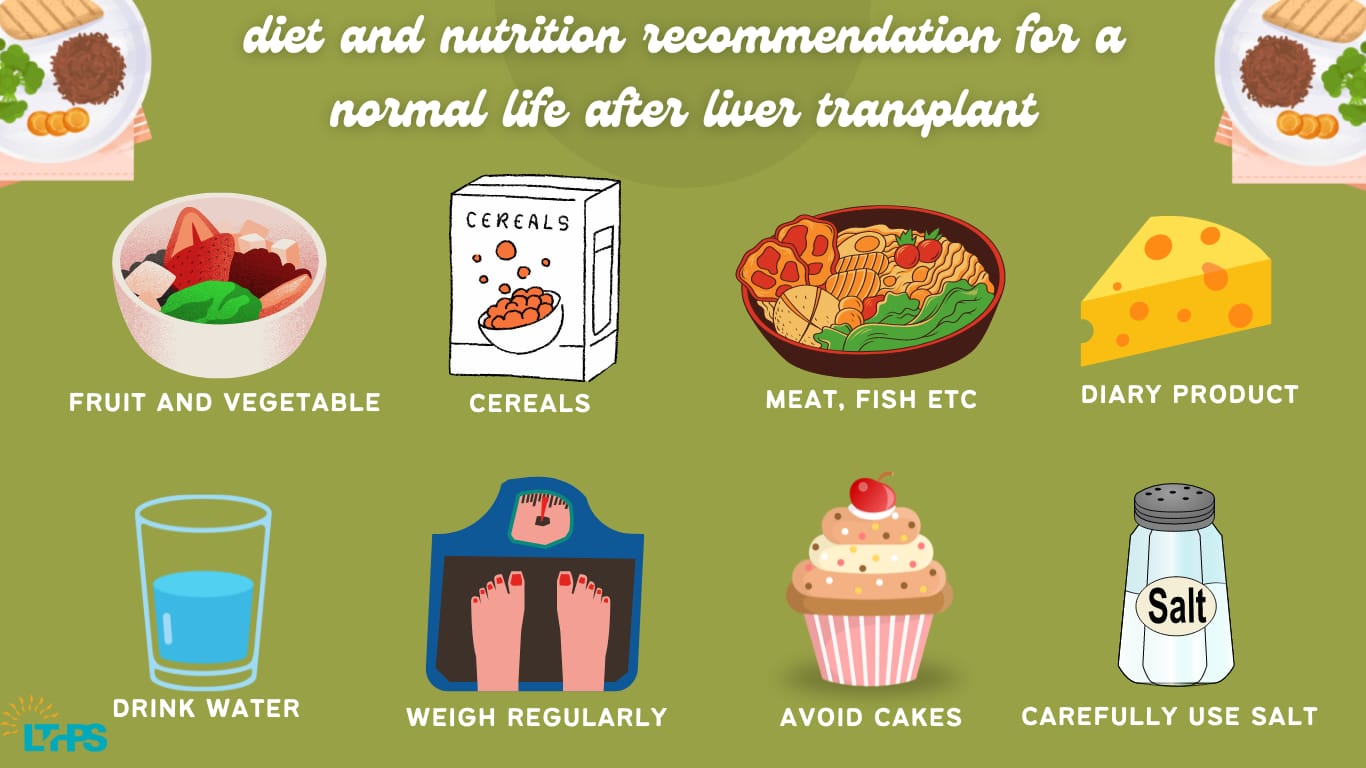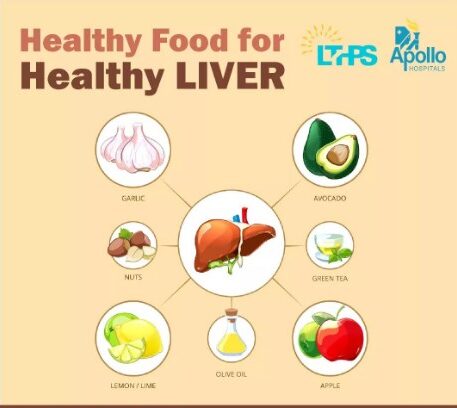Introduction
Have you ever noticed a peculiar, musty, sweet, or even rotten smell in someone’s breath that doesn’t go away with brushing or mouthwash? This isn’t ordinary bad breath—it could be fetor hepaticus, a warning sign of severe liver disease, often linked with end-stage liver failure.
Think of your liver as the body’s natural filter, just like a water purifier at home. When the purifier stops working, impurities spread everywhere. Similarly, when the liver can’t do its job, toxins build up, and one of the unusual signals is this distinct smell in the breath.
In this article, we’ll explore what fetor hepaticus means, why it happens, its link with liver cirrhosis and end-stage disease, treatment options, and the critical role of a liver transplant. We’ll also guide you on when to seek the expertise of the best liver transplant surgeon in India.
Table of Contents
| Sr# | Headings |
|---|---|
| 1 | What is Fetor Hepaticus? |
| 2 | Why Does Fetor Hepaticus Happen? |
| 3 | The Link Between Fetor Hepaticus and End-Stage Liver Disease |
| 4 | How Fetor Hepaticus Differs from Regular Bad Breath |
| 5 | Other Symptoms That Accompany Fetor Hepaticus |
| 6 | Role of Liver in Filtering Toxins |
| 7 | Causes of Liver Damage Leading to Fetor Hepaticus |
| 8 | Diagnosis: How Doctors Identify Fetor Hepaticus |
| 9 | Can Fetor Hepaticus Be Treated with Home Remedies? |
| 10 | Medical Management Before Transplant |
| 11 | When is Liver Transplant the Only Solution? |
| 12 | Importance of Choosing the Best Liver Transplant Surgeon in India |
| 13 | Life After Liver Transplant |
| 14 | Preventive Steps to Protect Your Liver |
| 15 | Conclusion |
1. What is Fetor Hepaticus?
Fetor hepaticus is a medical term used to describe a distinctive, foul-smelling breath that occurs in people with severe liver disease. The odor is often described as sweet, musty, or like raw fish or freshly cut grass.
It is not caused by poor oral hygiene but rather by toxins that escape from the liver and enter the lungs, leading to this unusual smell when the patient exhales.
2. Why Does Fetor Hepaticus Happen?
The smell originates because the damaged liver can not break down certain sulfur-containing compounds. These compounds, such as dimethyl sulfide, circulate in the blood and get exhaled through the lungs, producing the characteristic smell.
In simple words, it’s like when your garbage disposal unit breaks down– the waste has nowhere to go and begins to stink.
3. The Link Between Fetor Hepaticus and End-Stage Liver Disease
Fetor hepaticus is not just bad breath– it is a serious red flag. It usually means the liver is in its final stage of damage, often due to cirrhosis, hepatitis, or liver cancer.
- At this stage, the liver can no longer filter toxins, leading to complications like:
- Hepatic encephalopathy (confusion, drowsiness, even coma).
- Bleeding tendencies.
- Fluid accumulation in the abdomen (ascites).
4. How Fetor Hepaticus Differs from Regular Bad Breath.
- Regular bad breath (halitosis) can be caused by:.
- Poor oral hygiene.
- Gum disease.
- Food particles stuck between teeth.
But fetor hepaticus doesn’t improve with brushing, flossing, or mouthwash. That’s what makes it unique and alarming.
5. Other Symptoms That Accompany Fetor Hepaticus.
If someone has fetor hepaticus, chances are they also have other signs of liver failure, such as:.
- Yellowing of skin and eyes (jaundice).
- Easy bruising or bleeding.
- Swelling of legs and abdomen.
- Mental confusion.
- Extreme fatigue.
6. Role of Liver in Filtering Toxins.
The liver is like the body’s central cleaning system. It:.
Filters toxins from the blood.
Helps digest food through bile production.
Stores energy and vitamins.
-
When the liver stops working, toxins spread everywhere, leading to problems in the brain, blood, and breath.
7. Causes of Liver Damage Leading to Fetor Hepaticus.
Some of the main causes that damage the liver include:.
- Alcohol abuse– long-term heavy drinking.
- Hepatitis infections (B and C).
- Fatty liver disease– linked to obesity and diabetes.
- Liver cancer.
- Autoimmune liver diseases.
8. Diagnosis: How Doctors Identify Fetor Hepaticus.
- Doctors usually identify it through:.
- Patient history and symptoms.
- Physical examination.
- Blood tests (liver function tests).
- Imaging (ultrasound, CT, MRI).
- Sometimes a liver biopsy.
9. Can Fetor Hepaticus Be Treated with Home Remedies?
Unfortunately, no. Mouthwashes or chewing gum may mask the odour briefly, but the root cause lies in the failing liver. Only proper medical treatment can address it.
10. Medical Management Before Transplant.
Before considering transplant, doctors may try to manage symptoms through:.
Medications to reduce ammonia buildup.
Controlling infections.
Managing fluid retention.
Special diets (low protein in some cases).
However, once liver failure advances, these measures are only temporary.
11. When is Liver Transplant the Only Solution?
If fetor hepaticus appears, it usually means the liver is severely damaged. In most cases, liver transplant becomes the only long-term solution.
A transplant replaces the diseased liver with a healthy one from a donor, giving patients a second chance at life.
12. Importance of Choosing the Best Liver Transplant Surgeon in India.
Liver transplant is a complex surgery requiring high expertise, advanced facilities, and experienced surgeons. That’s why choosing the best liver transplant surgeon in India is critical.
Dr. Neerav Goyal is a distinguished liver and gastrointestinal surgeon with over two decades of surgical excellence. With a remarkable track record of more than 2,500 successful liver transplantations, he is widely recognized for his exceptional expertise in liver transplants, complex organ surgeries, and advanced gastrointestinal procedures.
Call us at 8527516541
|Email at : [email protected]
India is home to world-class transplant centers with specialists who have performed hundreds of successful surgeries. Patients not only get high survival rates but also cost-effective treatment compared to Western countries.
13. Life After Liver Transplant.
- Life doesn’t stop after a liver transplant– it begins anew. Patients need to:.
- Take lifelong medicines to prevent rejection.
- Maintain a healthy lifestyle.
- Avoid alcohol and smoking.
- Go for regular follow-ups.
- Most people return to normal, active lives after recovery.
- 14. Preventive Steps to Protect Your Liver.
While liver transplant is life-saving, prevention is always better. Here’s how to protect your liver:.
- Avoid excessive alcohol.
- Get vaccinated for hepatitis B.
- Maintain a healthy weight.
- Exercise regularly.
- Eat a balanced diet low in processed foods.
- Go for regular health check-ups.
15. Conclusion.
Fetor hepaticus is not just about bad breath– it’s a life-threatening signal of end-stage liver disease. If you or a loved one notice this symptom along with other liver-related signs, do not ignore it. Immediate medical help and evaluation for a liver transplant may be needed.
Choosing the best liver transplant surgeon in India can make the difference between life and death. With timely treatment and expert care, a healthy and fulfilling life is possible even after liver failure.
FAQs.
1. What does fetor hepaticus smell like?
It is often described as musty, sweet, or like raw fish or freshly cut grass.
2. Can fetor hepaticus go away on its own?
No, it does not disappear without treating the underlying liver disease.
3. Is fetor hepaticus always a sign of liver failure?
In most cases, yes. It is strongly linked with end-stage liver disease and should never be ignored.
4. How is liver transplant decided for patients with fetor hepaticus?
Doctors evaluate liver function tests, symptoms, and overall health before recommending transplant.
5. Who is the best liver transplant surgeon in India?
India has several renowned surgeons with international experience. Patients should choose specialists with proven success rates and advanced hospital facilities.



